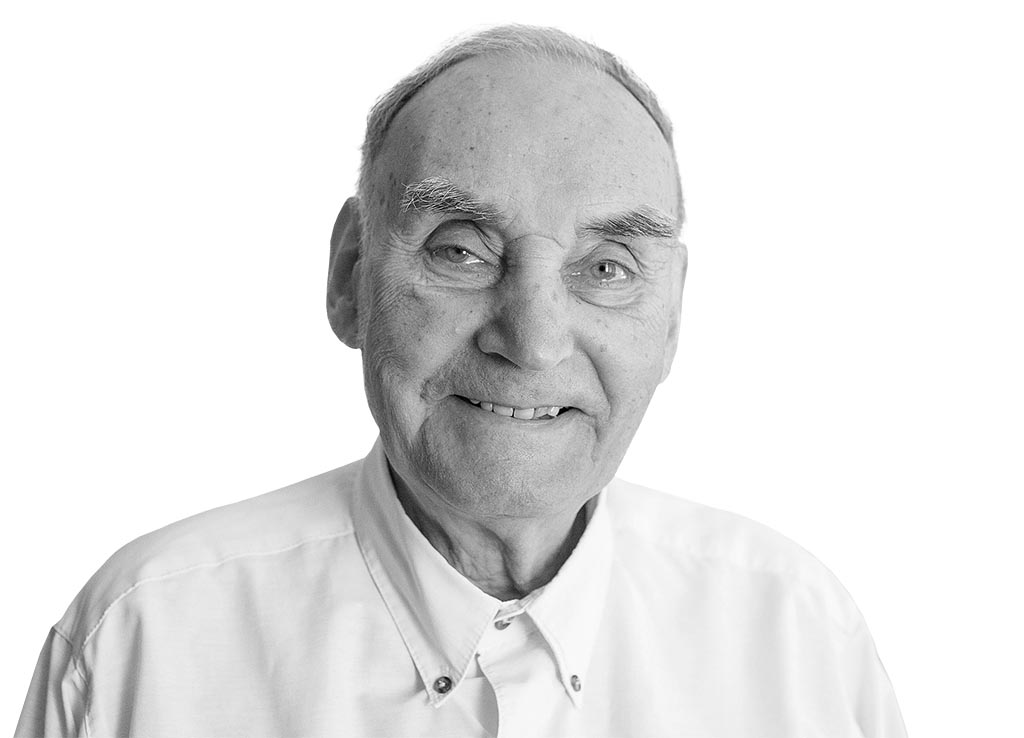By: Mag. Andrej Aplenc
Through the dense night is the title of a book edited by writer Alenka Puhar. She edited, not wrote, this unusual book, which brings correspondence between Dr Boris Furlan and his daughter Staša Furlan Seaton from May 1951 to June 1957. He lived in Slovenia and was a prisoner on parole, while she lived in the USA. This is a unique book that reveals a very personal and emotional relationship between a father and daughter through letters.
Dr Boris Furlan was born in Trieste in 1894 and became a full professor at the Faculty of Law in Ljubljana. Then he fled from the fascists from Ljubljana in March 1941 with his family, wife, daughter Staša, and son Aljoša and travelled via Belgrade, Greece, Turkey, and Egypt and by ship around Africa to New York. In 1944 he travelled to London. Then he replaced Izidor Cankar as a minister in the provisional government and at the beginning of 1945, together with Fran Snoj, he went to Slovenia to the territory controlled by the partisans. He was offered to participate in the Tito-Šubašič government. Of course, nothing came of it, but Dr Furlan became the dean of the Faculty of Law in Ljubljana. He was arrested in 1947. He was tried at the so-called Nagode trial together with Črtomir Nagode, Ljubo Sirc, Angela Vode, Metod Kumelj, Zoran Hribar, Leon Kavčnik, and Franc Snoj. He was sentenced to death, but his sentence was later reduced to 20 years in prison. He was paroled after four years due to illness. While on vacation in Radovljica in 1953, he was attacked and seriously injured. He died in 1957.
Back to the book Through the dense Night. The book is unique, it contains Boris Furlan’s letters to his daughter Staša Furlan Seaton and hers to him in 1951 until his death in 1957. As the publicist Alenka Puhar writes in the foreword, Staša Furlan Seaton offered the letters for publication. Staša Furlan Seaton died at a very old age in 2022.
The book has over 500 pages, from it, i.e., from the letters, branches not only the love of a father to his daughter, but also the spirit of that time. I would mention only one example of extreme irony. When Boris Furlan was in the hospital, he found himself in the same room with Dragutin Gustinčič. Dragutin Gustinčič was one of the founders of the Yugoslav Communist Party, he spent many years in Moscow, where, among other things, he wrote the text Development of the Slovenian National Question, and after returning to Yugoslavia, he was imprisoned on Goli otok. And then Boris Furlan and Dragutin Gustinčič found themselves in the same room in the hospital, both victims of the same party regime. By the way, Edvard Kardelj stole Gustinčič’s text Development of the Slovenian National Question and published it slightly changed as his own. The irony is not over yet, now Edvard Kardelj has a monument in the square in front of the Slovenian Parliament, but almost no one knows anything about Furlan and Gustinčič. In any case, the book Through the dense night will change that at least a little.
Along with all this, it is also worth mentioning the book, much thinner, War Changes Everything. It was written by Staša Furlan Seaton, it was published in the USA in 2014, and in Slovenia in translation two years later. In it, Staša Furlan Seaton describes how she lived in Slovenia, spent her holidays in Bohinj and climbed Triglav. Then she describes a trip with her father and family to America and life there, where she happily walked around New York with her father Boris Furlan. Shortly before the end of the war, like her father, she returned to her homeland, she to Dalmatia, where she joined the partisans. Among other things, she was a member of an acting group, then she left it, and when she came back, they were all gone. She went to Ljubljana, where she met her father, who was confined in the Emona Hotel. She managed to escape to Trieste, from where she finally came to the United States after complications. She finished her university studies there. In the book, she also lists some letters that her father Boris Furlan wrote to her.
When I compared the English and Slovenian editions of her book, I saw that in 11 cases the Slovenian edition omits words and paragraphs that refer to post-war massacres.
In any case, both books – Through the dense night and War changes everything – are worth reading, especially now, when we have a left-wing government and when some praise the former regime.

